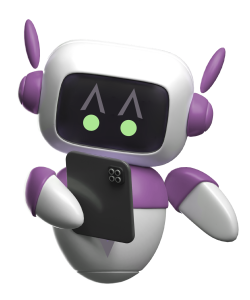AI agents are revolutionizing how we interact with technology. They’re not just advanced chatbots or basic automation tools; they’re intelligent systems transforming industries, simplifying processes, and creating new possibilities.
But what are AI agents? How do they function? And why are they important? Let’s explore the impact of AI agents on businesses and individuals alike. This exciting field offers much to learn about how AI solutions are shaping our world.
What Are AI Agents?
AI agents are software programs that perform tasks automatically for users or other systems. They use artificial intelligence, such as machine learning and natural language processing, to understand their surroundings, make choices, and take action.
Consider them your super-powered digital assistants, capable of handling complex tasks and learning from experience. These goal-based agents can even work with other agents to solve problems, collaborating to achieve specific goals.
How AI Agents Work
AI agents operate on a few core principles: perception, decision-making, action, and learning. They gather environmental data through sensors or inputs.
Using AI algorithms, they analyze this data and select the best action. They execute the chosen action, which could involve answering a question or controlling a robot.
Finally, they update their knowledge base based on the results. This constant learning improves performance over time, as agents continuously refine their understanding.
This cycle enables AI agents to tackle increasingly difficult tasks and adapt to new situations, as they are designed to enhance our ability to complete tasks efficiently. Agents continuously learn and refine their processes.
Types of AI Agents
AI agents vary in complexity. Let’s examine the main types: simple reflex agents, model-based reflex agents, goal-based agents, utility-based agents, and learning agents.
Simple Reflex Agents
These basic agents operate on an “if-then” basis, reacting only to current perceptions. They don’t consider past experiences or future outcomes. Think of a thermostat adjusting the heating based solely on the current temperature.
Model-Based Reflex Agents
These agents use an internal model of their environment. This model helps them make better decisions by considering a wider range of factors.
For example, a self-driving car uses sensors to perceive its environment and maintains an internal map. This map aids navigation, especially when immediate perception is limited, such as turning a corner.
Goal-Based Agents
These agents consider their objectives in addition to current perceptions and their internal model. They can plan a series of actions to achieve those goals.
A chess-playing AI, for example, plans several moves ahead with the ultimate goal of winning the game. This goal-oriented approach makes these agents highly effective for strategic tasks.
Utility-Based Agents
Utility-based agents evaluate how desirable different results are. This evaluation lets them make the best decisions when goals conflict or information is incomplete.
For example, an AI managing investments must balance maximizing returns and minimizing risk, considering different utility values for various investment strategies.
Learning Agents
Learning agents can be of any of the types above, but they improve their performance over time through experience. Reinforcement learning allows them to adapt and improve their task performance.
An AI-powered customer service chatbot that learns from user feedback and past interactions provides personalized support, learning how to better assist human users.
Benefits of AI Agents vs Traditional Software
AI agents offer several advantages over traditional software, providing many of the benefits ai we seek. AI agents offer adaptability, autonomy, personalization, efficiency, and scalability.
| Feature | AI Agent Advantage |
|---|---|
| Adaptability | Learns and adapts to new situations over time |
| Autonomy | Operates with minimal human intervention |
| Personalization | Tailors behavior to specific users or contexts |
| Efficiency | Handles tasks quickly and accurately |
| Scalability | Handles increased workloads easily |
Real-World Applications of AI Agents
AI agents are already impacting diverse industries, making it simpler to accomplish complex goals and deploy generative ai in various ways. They’re found in areas such as customer service, healthcare, finance, manufacturing, and transportation.
Customer Service
AI chatbots provide 24/7 support and understand customer emotions. These ai agents customer service representatives improve customer experience while saving businesses time.
Healthcare
AI agents assist in diagnosis and treatment planning, analyzing medical images, predicting patient outcomes, and managing hospital resources. This intelligent automation can greatly improve healthcare efficiency.
Finance
From algorithmic trading to fraud detection, AI agents analyze market trends, assess risks, and make rapid trading decisions. They provide valuable insights to improve financial strategies.
Manufacturing
AI agents optimize production, predict equipment failures, and manage supply chains. They help streamline operations and achieve specific goals like improved fuel efficiency.
Transportation
Self-driving cars are a prominent example, but AI agents also optimize traffic flow, manage logistics, and enhance public transit. They contribute to making transportation systems smarter and more efficient.
The Future of AI Agents
AI agents hold immense potential. As AI agents become more sophisticated, expect greater collaboration with humans. They can work together in multi-agent systems and become more transparent.
According to a McKinsey report, over 72% of surveyed companies use AI solutions, with rising interest in generative AI. They can be used in many industries. They have applications that go beyond our understanding today. This latest ai allows people and businesses alike to improve their efficiency and reach goals set before. With their power to complete tasks in ways never thought of before, they’re a hot topic in today’s conversations.
Challenges and Considerations
Despite the promise, challenges remain with ai development. Ethical concerns arise about responsibility. Privacy and security require safeguarding data while allowing AI to function.
Job displacement is a concern as AI automates roles. Transparency and explainability are crucial, particularly in sensitive applications.
FAQs about AI agents
What do AI agents do?
AI agents perform tasks autonomously, ranging from customer service to optimizing industrial processes. Their functionality depends on their design and AI capabilities. They use their artificial intelligence to analyze, process, and respond to user inputs.
What are the 5 types of AI agents?
The five main types are simple reflex, model-based reflex, goal-based, utility-based, and learning agents. Each type has different strengths suited to particular tasks.
Is ChatGPT an AI agent?
ChatGPT is a large language model AI agent designed for conversation. While it lacks some capabilities of other agents, like interacting with external systems, it uses AI to perceive, process, and respond to inputs.
How many AI agents are there?
There’s no exact count of AI agents due to continuous development. They range from chatbots to complex systems. Their numbers are rapidly expanding as their potential unfolds. Some agents customer service and are able to do many of the front-line things to keep customers satisfied and coming back. Many people are now trying to figure out how to build ai and make sure their agents continuously work. It’s a growing field where researchers work hard to achieve ever better agents.
Conclusion
AI agents are transforming how we interact with technology. From chatbots to decision-making systems, AI agents prove valuable across sectors. Their goal-oriented functions, in particular, highlight their value to industries looking for ai solutions that will increase productivity. As these intelligent agents work behind the scenes and become more integrated, their model-based reflex gives them an edge against other similar agents. Utility-based agents work behind the scenes, ensuring your tasks get done right.
As we progress, responsible development is key, addressing challenges while exploring the vast potential of AI agents. Keeping an eye on AI agent development is important for everyone interested in the future of technology. AI agents are shaping our present and future in profound ways.





